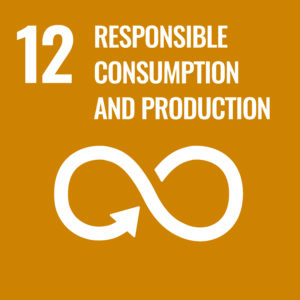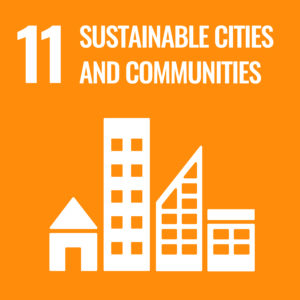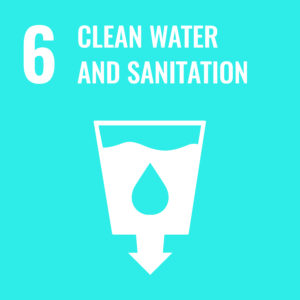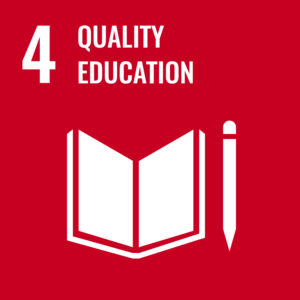
To celebrate the 17 days of competition at the Olympic Games Tokyo 2020, each day we will celebrate the power of sport and its influence in relation to each of the 17 Sustainable Development Goals (SDGs).
Today is dedicated to Goal 13: The formal wording of Goal 13 is to "Take urgent action to combat climate change and its impacts". The Goal has targets to be achieved by 2030. Progress towards targets is measured by indicators.
The targets cover a wide range of issues surrounding climate action. There are five targets in total. The first three targets are "output targets": Strengthen resilience and adaptive capacity to climate-related disasters; integrate climate change measures into policies and planning; build knowledge and capacity to meet climate change. The remaining two targets are "means of achieving" targets: To implement the UN Framework Convention on Climate Change; and to promote mechanisms to raise capacity for planning and management. The United Nations Framework Convention on Climate Change (UNFCCC) is the primary international, intergovernmental forum for negotiating the global response to climate change.
Click here for a list of examples of how sport addresses the SDG 13

To celebrate the 17 days of competition at the Olympic Games Tokyo 2020, each day we will celebrate the power of sport and its influence in relation to each of the 17 Sustainable Development Goals (SDGs).
Today is dedicated to Goal 12: The official wording of SDG 12 is "To ensure sustainable consumption and production patterns". SDG 12 is meant to ensure good use of resources, improving energy efficiency, sustainable infrastructure, and providing access to basic services, green and decent jobs and ensuring a better quality of life for all. SDG 12 has 11 targets to be achieved by at least 2030 and progress toward the targets is measured using 13 indicators.
The 11 targets of the goal are: implement the 10‑Year Framework of Programs on Sustainable Consumption and Production Patterns; achieve the sustainable management and efficient use of natural resources; reducing by half the per capita global food waste at the retail and consumer levels and the reduction of food losses along production and supply chains, including post-harvest losses; achieving the environmentally sound management of chemicals and all wastes throughout their life cycle; reducing waste generation through prevention, reduction, recycling and reuse; encourage companies to adopt sustainable practices; promote public procurement practices that are sustainable; and ensure that people everywhere have the relevant information and awareness for sustainable development. The three "means of achieving" targets are: support developing countries to strengthen their scientific and technological capacity; develop and implement tools to monitor sustainable development impacts; and remove market distortions, like fossil fuel subsidies, that encourage wasteful consumption.
- Sport can promote sustainable consumption and production through education and awareness raising campaigns. The popularity and outreach of sport offer opportunities for awareness raising and information sharing, including sustainable development and nature friendly lifestyles. Messages and awareness raising campaigns concerning sustainable consumption and production can be disseminated through sport products, services and events.
- The incorporation of sustainability standards in the production and provision of sport products can contribute to sustainable consumption and production patterns, also involving other industries.
- With regard to natural resources, their sustainable management and efficient use can be enhanced in sport contexts. Sport-based activities involving natural resources, such as outdoor sport, can be platforms to promote the responsible use of natural resources.
- Sport can encourage sustainable tourism and lifestyles as well as sustainable tourism products and services for instance in host cities of sport events. Sport can educate tourists on ways to minimize their travel footprint and promote eco-mobility for example when attending
- sport events. It can build capacities in tourism and engage relevant stakeholders in sustainable practices which report their impacts on the environment.
Click here for a list of examples of how sport addresses the SDG 12

To celebrate the 17 days of competition at the Olympic Games Tokyo 2020, each day we will celebrate the power of sport and its influence in relation to each of the 17 Sustainable Development Goals (SDGs).
Today is dedicated to Goal 11: The SDG 11 is to "Make cities inclusive, safe, resilient and sustainable". The targets of SDG 11 include investment in public transport, creating green public spaces, and improving urban planning and management in participatory and inclusive ways.
SDG 11 has 10 targets to be achieved, and this is being measured with 15 indicators. The seven "outcome targets" include: Safe and affordable housing, affordable and sustainable transport systems; inclusive and sustainable urbanization; protect the world's cultural and natural heritage; reduce the adverse effects of natural disasters; reduce the environmental impacts of cities; provide access to safe and inclusive green and public spaces. The three "means of achieving" targets include: Strong national and regional development planning; implement policies for inclusion, resource efficiency and disaster risk reduction; support least developed countries in sustainable and resilient building.
- Sport can advocate for and contribute to provide inclusive, safe, green and cohesive settlements which are usable for sport and other physical activities. Affordable and accessible sport infrastructures, facilities and related services can contribute to creating inclusive, safe and healthy communities.
- Sport can promote the use of public spaces where diverse populations and marginalized community members can interact and create friendly relations. Sport can reduce antisocial behaviour through the provision of facilities and opportunities in areas affected by poverty, disengagement and low social development.
- Sport can be used to integrate refugees and migrants into communities. Refugee camps, Internally Displaced People locations, and urban locations can include people of all ages, ethnicities and origins.
- Sport can raise awareness with regard to equal rights and inclusive settlements for people with disabilities, the elderly, women and girls, and other vulnerable groups and individuals.
- Sport can help eliminate obstacles and barriers in the environment, transportation, public facilities and services to ensure that people facing those barriers such as persons with disabilities can access sport and physical activities.
- Sport can enhance the sustainable development of cities by building facilities with the most enhanced resource and energy efficiency, and by assessing policies and procedure with procurement standards labelling.
Click here for a list of examples of how sport addresses the SDG 11

To celebrate the 17 days of competition at the Olympic Games Tokyo 2020, each day we will celebrate the power of sport and its influence in relation to each of the 17 Sustainable Development Goals (SDGs).
Today is dedicated to Goal 10: This goal has ten targets to be achieved by 2030. Progress towards targets will be measured by indicators. The first seven targets are "outcome targets": Reduce income inequalities; promote universal social, economic and political inclusion; ensure equal opportunities and end discrimination; adopt fiscal and social policies that promotes equality; improved regulation of global financial markets and institutions; enhanced representation for developing countries in financial institutions; responsible and well-managed migration policies. The other three targets are "means of achievement" targets: Special and differential treatment for developing countries; encourage development assistance and investment in least developed countries; reduce transaction costs for migrant remittances.
- The right to equality and non-discrimination is a cornerstone of international law. Sport can promote equality and can serve as a platform to promote the value of diversity. Stakeholders in sport can amplify the message of equality and respect for diversity.
- Sport, including sport events, can be used to celebrate and value diversity. Stakeholders in sport can promote mutual understanding and address discriminatory practices and various forms of discrimination. Sport stadia that serve as stages for human behaviour can become platforms for human rights based inclusiveness and respect for diversity.
- Sport is recognized as a contributor to the empowerment of individuals, such as women and young people, and communities. Participation in sport offers opportunities for the empowerment of people with disabilities; it showcases ability, not disability, thus raising awareness and promoting respect. Sport can therefore be effectively used for the inclusion of all irrespective of age, sex, race, ethnicity, origin, sexual orientation, gender identity, religion or economic or other status.
- Equal opportunities can be achieved in and through sport by raising awareness towards existent inequalities and establishing sport-related policies and programmes aimed at reducing them.
- The popularity of, and positive attitude towards sport make it a suitable tool for tackling inequality in areas and populations that are difficult to reach. It can also tackle prejudice an intolerance by promoting tolerance and pro-social behaviour instead.
Click here for a list of examples of how sport addresses the SDG 10

To celebrate the 17 days of competition at the Olympic Games Tokyo 2020, each day we will celebrate the power of sport and its influence in relation to each of the 17 Sustainable Development Goals (SDGs).
Today is dedicated to Goal 9: Goal 9 aims to build resilient infrastructure, promote sustainable industrialization and foster innovation.
It has eight targets, and progress is measured by twelve indicators. The first five targets are "outcome targets": Develop sustainable, resilient and inclusive infrastructures; promote inclusive and sustainable industrialization; increase access to financial services and markets; upgrade all industries and infrastructures for sustainability; enhance research and upgrade industrial technologies. The remaining three targets are "means of achieving" targets: Facilitate sustainable infrastructure development for developing countries; support domestic technology development and industrial diversification; universal access to information and communications technology.
- The growing scale of the sport industry, and its links with other sectors, offer opportunities for economic growth and decent employment.
- Stakeholders in sport that base their activity on the respect of human rights can spur to positively impact local and regional business when organizing sport events.
- Sport goods and equipment should be produced in line with labour standards and in particular free from forced and child labour and discriminations of all forms.
- Sport programmes can foster increased employability for women, people with disabilities and other vulnerable groups, thus contributing to inclusive economic growth.
- Sport-based educational programmes provide skills for employability and opportunities to enter the labour market for youth.
- Sport-based employment and entrepreneurship can contribute to create decent jobs for all by complying with labour standards throughout their value chain and in line with businesses policies and practices.
- Sport can generate enhanced overall community involvement, and it can motivate mobilization of the wider community and growth of economic activities associated with sport.
- Sport events can have long lasting effects on the population if they involve the population for their legacy, to be in line with human rights and labour standards, and to be sustainable.
- Sport organizations and sport events, if they adopt adequate policies and procedures, can be an opportunity for capacity building, creating jobs, and for economic, social and environmental sustainable development in general.
- Sport tourism, including tourism involving sport events, can create jobs and promote local culture and products.
- Sport can promote the effective and responsible management of volunteers, helping to promote their participation in society and community engagement.
Click here for a list of examples of how sport addresses the SDG 9

To celebrate the 17 days of competition at the Olympic Games Tokyo 2020, each day we will celebrate the power of sport and its influence in relation to each of the 17 Sustainable Development Goals (SDGs).
Today is dedicated to Goal 8: The full title of Goal 8 is to: "Foster sustained, inclusive and sustainable economic growth, full and productive employment and decent work for all." Progress towards targets will be measured, monitored and evaluated by 17 indicators.
SDG 8 has twelve targets in total to be achieved by 2030. Some targets are for 2030; others are for 2020. The first ten are "outcome targets". These are: sustainable economic growth; diversify, innovate and upgrade for economic productivity; promote policies to support job creation and growing enterprises; improve resource efficiency in consumption and production; full employment and decent work with equal pay; promote youth employment, education and training; end modern slavery, trafficking, and child labour; protect labour rights and promote safe working environments; promote beneficial and sustainable tourism; universal access to banking, insurance and financial services. In addition there are also two targets for "means of achieving": Increase aid for trade support; develop a global youth employment strategy.
- The growing scale of the sport industry, and its links with other sectors, offer opportunities for economic growth and decent employment.
- Stakeholders in sport that base their activity on the respect of human rights can spur to positively impact local and regional business when organizing sport events.
- Sport goods and equipment should be produced in line with labour standards and in particular free from forced and child labour and discriminations of all forms.
- Sport programmes can foster increased employability for women, people with disabilities and other vulnerable groups, thus contributing to inclusive economic growth.
- Sport-based educational programmes provide skills for employability and opportunities to enter the labour market for youth.
- Sport-based employment and entrepreneurship can contribute to create decent jobs for all by complying with labour standards throughout their value chain and in line with businesses policies and practices.
- Sport can generate enhanced overall community involvement, and it can motivate mobilization of the wider community and growth of economic activities associated with sport.
- Sport events can have long lasting effects on the population if they involve the population for their legacy, to be in line with human rights and labour standards, and to be sustainable.
- Sport organizations and sport events, if they adopt adequate policies and procedures, can be an opportunity for capacity building, creating jobs, and for economic, social and environmental sustainable development in general.
- Sport tourism, including tourism involving sport events, can create jobs and promote local culture and products.
- Sport can promote the effective and responsible management of volunteers, helping to promote their participation in society and community engagement.
Click here for a list of examples of how sport addresses the SDG 8

To celebrate the 17 days of competition at the Olympic Games Tokyo 2020, each day we will celebrate the power of sport and its influence in relation to each of the 17 Sustainable Development Goals (SDGs).
Today is dedicated to Goal 7: Goal 7 aims to "Ensure access to affordable, reliable, sustainable and modern energy for all." Access to energy is a very important pillar for the wellbeing of the people as well as economic development and poverty alleviation.
The goal has five targets to be achieved by 2030. Progress towards the targets is measured by six indicators. Three out of the five targets are "outcome targets": Universal access to modern energy; increase global percentage of renewable energy; double the improvement in energy efficiency. The remaining two targets are "means of achieving targets": to promote access to research, technology and investments in clean energy; and expand and upgrade energy services for developing countries. In other words, these targets include access to affordable and reliable energy while increasing the share of renewable energy in the global energy mix.
- Sport programmes and activities can support initiatives aiming at developing energy provision systems and ensuring access to energy.
- Sport can be a forum for discussion and promotion of energy efficiency. It can promote energy efficiency and clean energy through joint work by relevant stakeholders.
- Sport facilities and sport events can contribute to targets concerning renewable energy, energy efficiency and access to clean energy by respecting standards and recommendations in these regards.
- Sport infrastructures can promote organization models that adopt clean and sustainable energy use.
Click here for a list of examples of how sport addresses the SDG 7

To celebrate the 17 days of competition at the Olympic Games Tokyo 2020, each day we will celebrate the power of sport and its influence in relation to each of the 17 Sustainable Development Goals (SDGs).
Today is dedicated to Goal 6: The six "outcome-oriented targets" of SDG 6 include: Safe and affordable drinking water; end open defecation and provide access to sanitation and hygiene, improve water quality, wastewater treatment and safe reuse, increase water-use efficiency and ensure freshwater supplies, implement IWRM (Integrated water resources management), protect and restore water-related ecosystems. The two "means of achieving" targets are to expand water and sanitation support to developing countries, and to support local engagement in water and sanitation management
- Sport can be an effective educational platform for disseminating messages on water sanitation requirements and management. Educational messages regarding sanitation and hygiene can be transmitted through sport programmes.
- Sport and sport facilities can contribute to targets on water and sanitation by respecting standards and recommendations.
- Access to adequate and equitable sanitation and hygiene for all can be enhanced through sport settings such as sport facilities adequately equipped to this end. Water-use efficiency can be increased in the sport sector, particularly in sport facilities.
- Improvements in water quality by reducing pollution, dumping and wastewater can be promoted and realized in sport contexts such as aquatic and other sport events.
- Sport can raise awareness on the importance to limit or ban single-use plastic and micro- beads and develop campaigns and initiatives to educate and change the behaviours of spectators and consumers.
Click here for a list of examples of how sport addresses the SDG 6

To celebrate the 17 days of competition at the Olympic Games Tokyo 2020, each day we will celebrate the power of sport and its influence in relation to each of the 17 Sustainable Development Goals (SDGs).
Today is dedicated to Goal 5: Goal 5 aims to eliminate all forms of discrimination and violence against women in the public and private spheres and to undertake reforms to give women equal rights to economic resources and access to ownership of property.
- Sport can be a powerful platform for advocacy and awareness raising for gender equality. It can contribute to abolish all forms of discrimination against women and girls; human rights based rules of a sport can help to replace culturally discriminative norms that exclude women and girls from sport.
- While women and girls’ rights to participate in sport as athletes or spectators are not respected in many countries, sport can help to foster gender equality in countries and regions where women are discriminated.
- Addressing current gender inequalities across participation, performance and leadership in sport can make a valuable contribution to this Goal. Sport can be used to address constricting gender norms and to promote equal participation of girls and women in sport.
- Sport and sport-based community programmes in particular can, if designed inclusively, cause positive shifts in gender norms and promote gender equality.
- Sport can foster increased self-esteem and confidence of women and girls, empower them and develop skills needed to become equal participants and leaders in their communities. Through sport-based programmes, women and girls can be equipped with knowledge and skills on health, on how to live a healthy and active lifestyle, on how to act in case they experience violence, on employability, and with leadership skills needed to progress in society.
- Sport can provide safe and fair environments for women and girls. A safe playing area for girls is especially essential, for instance in refugee camps.
- Sport can raise awareness and address abuse and gender-based violence within sport.
- Men and boys can be engaged in achieving gender equality in and through sport.
- Sport can promote better gender relations and cooperation.
Click here for a list of examples of how sport addresses the SDG 5

To celebrate the 17 days of competition at the Olympic Games Tokyo 2020, each day we will celebrate the power of sport and its influence in relation to each of the 17 Sustainable Development Goals (SDGs).
Today is dedicated to Goal 4: Ensure inclusive and equitable quality education and promote lifelong learning opportunities for all. SDG 4 has ten targets which are measured by 11 indicators. The seven "outcome-oriented . targets" are: free primary and secondary education; equal access to quality pre-primary education; affordable technical, vocational and higher education; increased number of people with relevant skills for financial success; elimination of all discrimination in education; universal literacy and numeracy; and education for sustainable development and global citizenship. The three "means of achieving targets" are: build and upgrade inclusive and safe schools; expand higher education scholarships for developing countries; and increase the supply of qualified teachers in developing countries.
- The right to education and equal rights of women and girls in the field of education form the basis of this goal. Inclusive sport activities have long been used to foster education and have therefore been identified as a tool to advance those rights.
- Sport can encourage inclusion and the equal participation of women and girls, people with disabilities, and other vulnerable or underrepresented groups and individuals.
- Stakeholders in sport and education can cooperate to promote tolerance, diversity and non-discrimination in school programmes.
Joint programmes with schools offer additional and alternative physical education and physical activities to support the full learning process and deliver holistic education. - Sport can improve learning outcomes by fostering academic performance and achievement, leadership abilities, and concentration and focus capabilities.
- Sport-based programmes offer education opportunities and life skills to be used beyond school including the workplace.
Sport, physical education, physical activity and play can motivate children and youth to attend school and engage with formal and informal education. Sport programmes for girls, including in refugee camps, can be used as an incentive to stay in school. - Sport can raise awareness about sustainability through designing sustainable educational curriculums and greening schools and universities.
Click here for a list of examples of how sport addresses the SDG 4